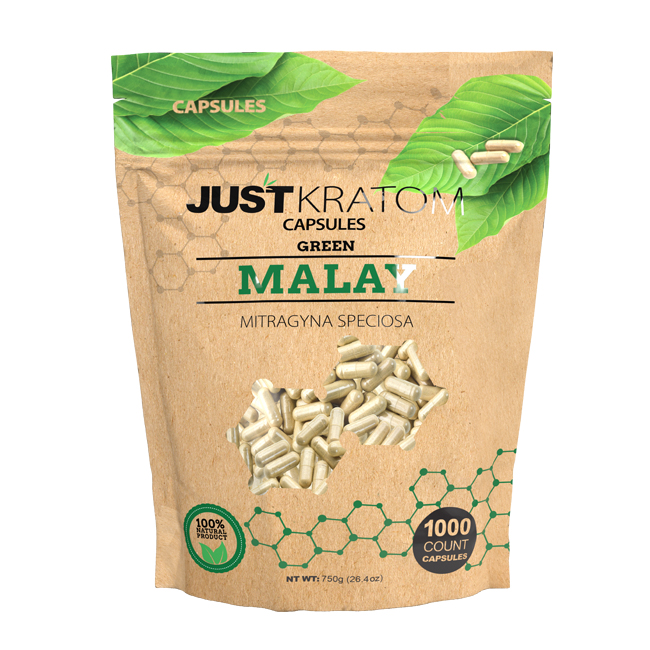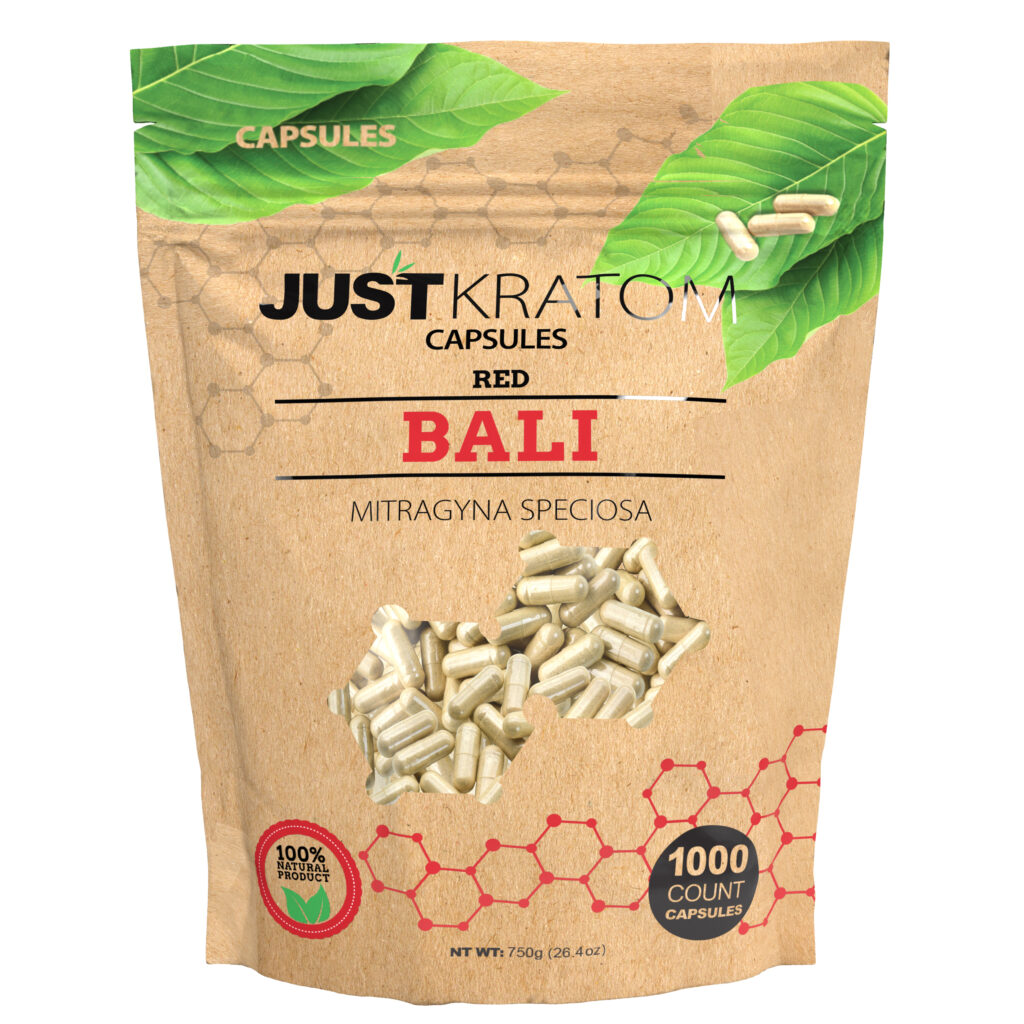Potential Cognitive Benefits of Kratom
Kratom, a tropical tree native to Southeast Asia, has gained increasing attention for its potential cognitive benefits. Traditionally used for centuries in various cultures, kratom contains alkaloids that may influence brain activity and potentially enhance mental clarity and focus.

Impact on Neurotransmitters
Krotm, a tropical tree native to Southeast Asia, has gained increasing attention for its potential cognitive benefits. Traditionally used for centuries in various cultures, kratom contains alkaloids that may influence brain activity and potentially enhance mental clarity and focus.
The primary alkaloids found in kratom, mitragynine and 7-hydroxymitragynine, are believed to interact with opioid receptors in the brain. These interactions can lead to various effects, including:
- Increased dopamine levels: Dopamine is a neurotransmitter associated with pleasure, motivation, and focus. Increased dopamine activity may contribute to improved mental clarity and cognitive performance.
- Modulation of acetylcholine: Acetylcholine plays a crucial role in learning, memory, and attention. Kratom may influence acetylcholine levels, potentially enhancing cognitive function.
- Reduced anxiety and stress: By interacting with opioid receptors, kratom may reduce the activity of stress hormones like cortisol, leading to a sense of calm and improved focus.
Influence on Blood Flow to the Brain
Kratom’s potential influence on blood flow to the brain is another area of interest. Some studies suggest that kratom alkaloids might promote vasodilation, the widening of blood vessels. Improved blood flow can potentially enhance oxygen and nutrient supply to brain cells, supporting optimal cognitive function.
It is important to note that research on kratom’s cognitive effects is ongoing, and more studies are needed to fully understand its mechanisms and long-term implications.
Improved Alertness and Focus
Kratom, a tropical tree native to Southeast Asia, has gained increasing attention for its potential cognitive benefits. Traditionally used for centuries in various cultures, kratom contains alkaloids that may influence brain activity and potentially enhance mental clarity and focus.
The primary alkaloids found in kratom, mitragynine and 7-hydroxymitragynine, are believed to interact with opioid receptors in the brain. These interactions can lead to various effects, including:
- Increased dopamine levels: Dopamine is a neurotransmitter associated with pleasure, motivation, and focus. Increased dopamine activity may contribute to improved mental clarity and cognitive performance.
- Modulation of acetylcholine: Acetylcholine plays a crucial role in learning, memory, and attention. Kratom may influence acetylcholine levels, potentially enhancing cognitive function.
- Reduced anxiety and stress: By interacting with opioid receptors, kratom may reduce the activity of stress hormones like cortisol, leading to a sense of calm and improved focus.

Kratom’s potential influence on blood flow to the brain is another area of interest. Some studies suggest that kratom alkaloids might promote vasodilation, the widening of blood vessels. Improved blood flow can potentially enhance oxygen and nutrient supply to brain cells, supporting optimal cognitive function.
Mechanisms Behind Kratom’s Cognitive Effects
Kratom, a tropical tree native to Southeast Asia, has gained increasing attention for its potential cognitive benefits. Traditionally used for centuries in various cultures, kratom contains alkaloids that may influence brain activity and potentially enhance mental clarity and focus.
The primary alkaloids found in kratom, mitragynine and 7-hydroxymitragynine, are believed to interact with opioid receptors in the brain. These interactions can lead to various effects, including:
- Increased dopamine levels: Dopamine is a neurotransmitter associated with pleasure, motivation, and focus. Increased dopamine activity may contribute to improved mental clarity and cognitive performance.
- Modulation of acetylcholine: Acetylcholine plays a crucial role in learning, memory, and attention. Kratom may influence acetylcholine levels, potentially enhancing cognitive function.
- Reduced anxiety and stress: By interacting with opioid receptors, kratom may reduce the activity of stress hormones like cortisol, leading to a sense of calm and improved focus.
Kratom’s potential influence on blood flow to the brain is another area of interest. Some studies suggest that kratom alkaloids might promote vasodilation, the widening of blood vessels. Improved blood flow can potentially enhance oxygen and nutrient supply to brain cells, supporting optimal cognitive function.
Opioid Receptors and Pain Management
Kratom, a tropical tree native to Southeast Asia, has gained increasing attention for its potential cognitive benefits. Traditionally used for centuries in various cultures, kratom contains alkaloids that may influence brain activity and potentially enhance mental clarity and focus.
The primary alkaloids found in kratom, mitragynine and 7-hydroxymitragynine, are believed to interact with opioid receptors in the brain. These interactions can lead to various effects, including:
- Increased dopamine levels: Dopamine is a neurotransmitter associated with pleasure, motivation, and focus. Increased dopamine activity may contribute to improved mental clarity and cognitive performance.
- Modulation of acetylcholine: Acetylcholine plays a crucial role in learning, memory, and attention. Kratom may influence acetylcholine levels, potentially enhancing cognitive function.
- Reduced anxiety and stress: By interacting with opioid receptors, kratom may reduce the activity of stress hormones like cortisol, leading to a sense of calm and improved focus.
Kratom’s potential influence on blood flow to the brain is another area of interest. Some studies suggest that kratom alkaloids might promote vasodilation, the widening of blood vessels. Improved blood flow can potentially enhance oxygen and nutrient supply to brain cells, supporting optimal cognitive function.
Stimulant-Like Properties
Kratom’s potential cognitive benefits are primarily attributed to its alkaloid content, particularly mitragynine and 7-hydroxymitragynine. These alkaloids interact with opioid receptors in the brain, leading to a range of effects that may enhance mental clarity and focus.
One key mechanism is the increased release of dopamine, a neurotransmitter associated with pleasure, motivation, and cognitive function. Elevated dopamine levels can contribute to improved attention, alertness, and overall cognitive performance.
Kratom also appears to modulate acetylcholine, another crucial neurotransmitter involved in learning, memory, and attention. By influencing acetylcholine levels, kratom may potentially enhance cognitive processes such as information processing and recall.
Furthermore, kratom’s interaction with opioid receptors may lead to reduced anxiety and stress. By mitigating the effects of stress hormones like cortisol, kratom can promote a sense of calm and mental clarity, further supporting focused cognitive activity.
Some research suggests that kratom alkaloids might also promote vasodilation, the widening of blood vessels. Improved blood flow to the brain can enhance oxygen and nutrient delivery to brain cells, potentially optimizing their function and supporting cognitive processes.
Potential Role in Dopamine Regulation
Kratom’s potential cognitive benefits are primarily attributed to its alkaloid content, particularly mitragynine and 7-hydroxymitragynine. These alkaloids interact with opioid receptors in the brain, leading to a range of effects that may enhance mental clarity and focus.
One key mechanism is the increased release of dopamine, a neurotransmitter associated with pleasure, motivation, and cognitive function. Elevated dopamine levels can contribute to improved attention, alertness, and overall cognitive performance.
Kratom also appears to modulate acetylcholine, another crucial neurotransmitter involved in learning, memory, and attention. By influencing acetylcholine levels, kratom may potentially enhance cognitive processes such as information processing and recall.
Furthermore, kratom’s interaction with opioid receptors may lead to reduced anxiety and stress. By mitigating the effects of stress hormones like cortisol, kratom can promote a sense of calm and mental clarity, further supporting focused cognitive activity.
Some research suggests that kratom alkaloids might also promote vasodilation, the widening of blood vessels. Improved blood flow to the brain can enhance oxygen and nutrient delivery to brain cells, potentially optimizing their function and supporting cognitive processes.
Research and Studies
Research into the cognitive effects of kratom is a relatively recent area of study, gaining momentum as awareness of this traditional Southeast Asian herb grows.
Early research suggests that kratom’s alkaloids, particularly mitragynine and 7-hydroxymitragynine, may interact with opioid receptors in the brain, influencing neurotransmitters associated with focus, motivation, and mood.
Limited Scientific Evidence
Research into the cognitive effects of kratom is a relatively recent area of study, gaining momentum as awareness of this traditional Southeast Asian herb grows.
Early research suggests that kratom’s alkaloids, particularly mitragynine and 7-hydroxymitragynine, may interact with opioid receptors in the brain, influencing neurotransmitters associated with focus, motivation, and mood.
However, the scientific evidence supporting kratom’s cognitive benefits is limited. Most studies are small-scale and have methodological limitations, making it difficult to draw definitive conclusions about its effectiveness or potential risks.
More rigorous, large-scale research is needed to fully understand the mechanisms by which kratom might affect cognition and to determine its long-term effects on brain health.
Preliminary Findings on Cognitive Enhancement
Research into the cognitive effects of kratom is a relatively recent area of study, gaining momentum as awareness of this traditional Southeast Asian herb grows. Early research suggests that kratom’s alkaloids, particularly mitragynine and 7-hydroxymitragynine, may interact with opioid receptors in the brain, influencing neurotransmitters associated with focus, motivation, and mood.
However, the scientific evidence supporting kratom’s cognitive benefits is limited. Most studies are small-scale and have methodological limitations, making it difficult to draw definitive conclusions about its effectiveness or potential risks. More rigorous, large-scale research is needed to fully understand the mechanisms by which kratom might affect cognition and to determine its long-term effects on brain health.
Need for Further Investigation
Research into the cognitive effects of kratom is a relatively recent area of study, gaining momentum as awareness of this traditional Southeast Asian herb grows. Early research suggests that kratom’s alkaloids, particularly mitragynine and 7-hydroxymitragynine, may interact with opioid receptors in the brain, influencing neurotransmitters associated with focus, motivation, and mood.
However, the scientific evidence supporting kratom’s cognitive benefits is limited. Most studies are small-scale and have methodological limitations, making it difficult to draw definitive conclusions about its effectiveness or potential risks. More rigorous, large-scale research is needed to fully understand the mechanisms by which kratom might affect cognition and to determine its long-term effects on brain health.
Order Kratom capsules for better mental focus
- Why Are My 11 Lines So Bad? - November 9, 2025
- What Is Tear Trough Filler Used For - November 7, 2025
- Weed Infused Mocktails For Every Mood - November 5, 2025
